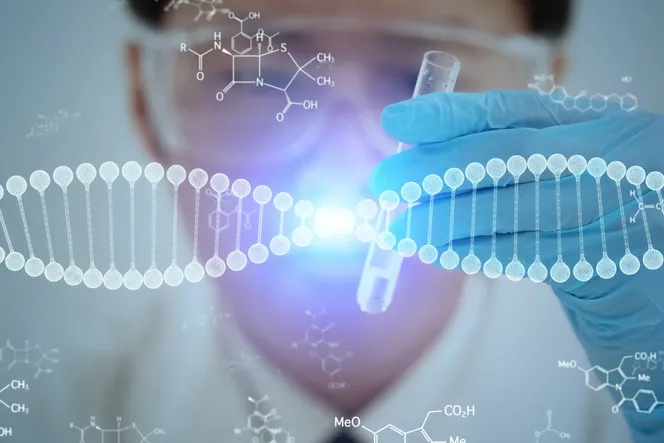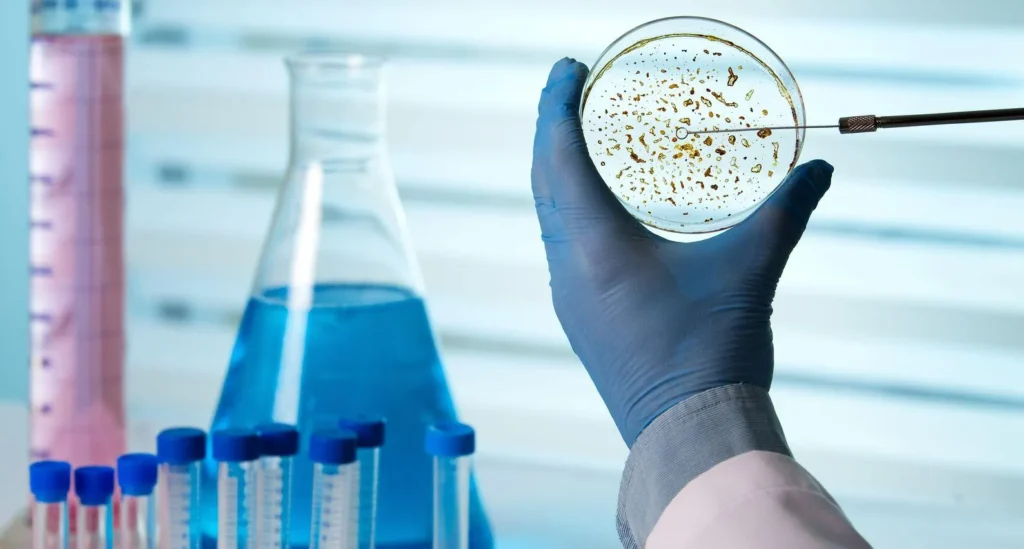
First Participants Enrolled in AskBio Phase II Gene Therapy Trial for Parkinson’s Disease
AskBio Inc., a leading gene therapy company and a subsidiary of Bayer AG, announced today that the first participants have been successfully randomized in its Phase II clinical trial for the treatment of Parkinson’s disease (PD). This marks a significant step forward in the company’s efforts to develop a novel gene therapy for patients with moderate-stage PD.
The Phase II trial, known as REGENERATE-PD, aims to evaluate the safety and efficacy of AB-1005, a gene therapy designed to deliver therapeutic genes to the brain to address the underlying causes of Parkinson’s disease. AB-1005 is delivered directly to the putamen, a region of the brain involved in motor control, through a minimally invasive procedure. This Phase II trial is randomized, double-blind, and includes adult participants between the ages of 45 and 75 with moderate-stage Parkinson’s disease. The primary objective is to assess how well the gene therapy works and whether it is safe for patients.
Dr. Rajesh Pahwa, MD, Director of the Parkinson’s Disease and Movement Disorder Center at the University of Kansas Medical Center and Principal Investigator of the REGENERATE-PD trial, expressed optimism about the trial’s progress. “The randomization of the first participants in REGENERATE-PD is positive news for people living with Parkinson’s disease and the physicians treating them. There is a significant need for neurorestorative therapies in Parkinson’s, and seeing the advancement of an important investigational gene therapy in a Phase II clinical trial gives hope to patients and the medical community,” Dr. Pahwa said.
The REGENERATE-PD trial is being conducted at clinical centers across the United States, Germany, Poland, and the United Kingdom. The trial is expected to enroll approximately 87 participants, and the outcome will be closely monitored for any signs of improvement or adverse effects as the program progresses.

AskBio initially began recruiting participants for the U.S. arm of the REGENERATE-PD trial in 2024. The trial will assess key factors such as the safety, tolerability, and efficacy of AB-1005 in treating moderate-stage Parkinson’s disease. As the trial progresses, researchers will gather data on motor function, quality of life, and other key health indicators to determine whether AB-1005 can help slow or reverse the progression of Parkinson’s disease.
This trial follows promising data from the Phase Ib study of AB-1005, which was presented at the 2024 International Congress of Parkinson’s Disease and Movement Disorders in Philadelphia. The data, which covered a 36-month period, demonstrated that AB-1005 was well tolerated by participants, with no serious adverse events attributed to the treatment. Among participants with moderate PD, the results indicated trends toward improvement or stability across several motor scales, including the Movement Disorder Society-Unified Parkinson’s Disease Rating Scale (MDS-UPDRS), motor diaries, and reductions in Parkinson’s medications, specifically levodopa-equivalent daily dose (LEDD). These encouraging results suggest that AB-1005 may have a beneficial effect in slowing the progression of the disease.
For the mild PD cohort, most participants showed stable clinical status with minimal changes in MDS-UPDRS, the PD motor diary, or LEDD, indicating that the treatment did not exacerbate the condition, even in the earlier stages of the disease.
Canwen Jiang, MD, PhD, Chief Development Officer and Chief Medical Officer at AskBio, commented on the trial’s progress. “AskBio continues to mark significant milestones in the clinical development of the investigational gene therapy AB-1005 as we strive to bring a safe and effective gene therapy to patients with moderate-stage Parkinson’s disease,” said Dr. Jiang. “With REGENERATE-PD participants now being randomized, we are excited by our progress with AB-1005 and look forward to sharing further updates at an appropriate scientific forum as the program advances through next year and beyond.”
The partnership between AskBio and Bayer AG also plays a pivotal role in advancing this gene therapy program. Christian Rommel, a member of Bayer’s Executive Committee for the Pharmaceuticals Division and Global Head of Research and Development, shared his thoughts on the program’s potential. “The advancement of AskBio’s Parkinson’s program is a significant milestone that highlights our commitment to exploring the potential of gene therapy in an area of significant unmet medical need,” Rommel said. “We believe that therapeutic modalities like gene therapy can change the treatment landscape for people living with the debilitating effects of Parkinson’s disease, and we look forward to seeing what we will learn in this next phase of research and development for AB-1005.”
Beyond Parkinson’s disease, AskBio is also investigating the potential of AB-1005 in treating other neurological conditions. The company is currently enrolling participants in the United States for a Phase I clinical trial assessing the safety, tolerability, and preliminary efficacy of AB-1005 in patients with the parkinsonian subtype of multiple system atrophy (MSA-P), a rapidly progressing condition. This expansion of clinical trials reflects AskBio’s commitment to exploring the broader applicability of its gene therapy approach.
AB-1005 is an investigational gene therapy and has not yet been approved by any regulatory authority. As such, its safety and efficacy have not been fully established. The ongoing clinical trials are designed to gather essential data to determine whether AB-1005 is a safe and effective treatment for Parkinson’s disease and other neurological disorders. If successful, AB-1005 could become a groundbreaking therapy in the field of gene therapy, offering hope to millions of patients affected by Parkinson’s disease and other neurodegenerative conditions.
Parkinson’s disease is a progressive neurodegenerative disorder that affects millions of people worldwide. While existing treatments focus on managing symptoms, there is a critical need for therapies that target the underlying causes of the disease and potentially reverse its progression. Gene therapy, which involves delivering genes to the brain to correct or replace faulty genetic material, holds great promise in addressing this need. AB-1005 represents one of the most advanced efforts in this field, offering a new potential approach to treating Parkinson’s disease at its source.
The next few years will be crucial for the development of AB-1005 as it advances through clinical trials. Data from the REGENERATE-PD trial, along with other ongoing studies, will help determine whether gene therapy can play a transformative role in the treatment of Parkinson’s disease. If successful, AB-1005 could revolutionize the way Parkinson’s disease is treated, providing a new avenue for patients who currently have few effective options.
In conclusion, the randomization of the first participants in AskBio’s Phase II clinical trial for Parkinson’s disease marks a significant milestone in the development of gene therapy for neurodegenerative disorders. With promising early data and the continued support of Bayer AG, AskBio is making important strides toward the potential commercialization of AB-1005. The outcomes of this trial could pave the way for a new era in Parkinson’s disease treatment, offering hope to patients who are looking for more effective solutions to manage their condition and improve their quality of life.





